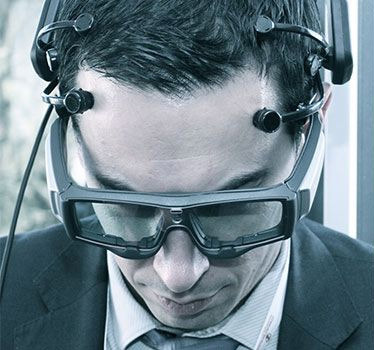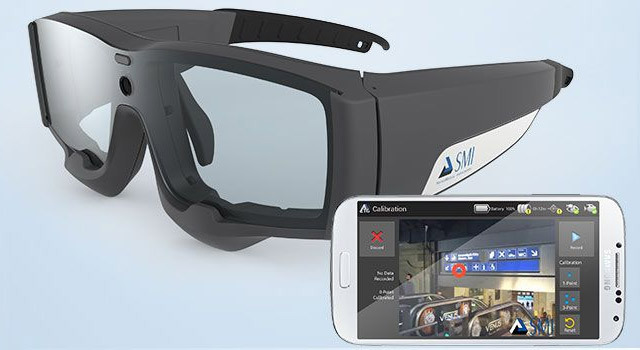Fitbit for the brain: a cognitive activity tracker

Recently, wearable gadgets like Fitbit and FuelBand, which count the number of steps taken and calories burned, have become very popular. But in the future, gadgets that track reading activity can become even more popular.
Kai Kunze from Osaka University (Japan) has developed a “cognitive activity tracker”. It records how many words you read per day, how often and how quickly you read - and even warn you if you read casually without sufficient concentration.
"Smart glasses" can even be a brief pressing of documents, with the most important pieces of text - based on where the gaze has stayed the longest.
')
Creating such gadgets possible through the use of trackers gaze direction. So far, the largest manufacturer of such devices is the Swedish company Tobii Technology, which has developed a set of head-mounted infrared cameras that monitor cornea movements. Cameras integrate with helmet / goggles, like Google Glass, or install over a monitor.
 Kunze uses the same method. His group has developed software that is able to count the number of words read with an accuracy of 94% and determine the speed of reading only by eye movements, writes New Scientist. The program almost perfectly recognizes the type of content — fiction, glossy magazine, newspaper, research paper, or textbook — by defining the markup of text on a page based on eye movements.
Kunze uses the same method. His group has developed software that is able to count the number of words read with an accuracy of 94% and determine the speed of reading only by eye movements, writes New Scientist. The program almost perfectly recognizes the type of content — fiction, glossy magazine, newspaper, research paper, or textbook — by defining the markup of text on a page based on eye movements.According to the inventor, the collected statistics is useful both for the users themselves, in order to analyze their reading habits, and for publishers of literature, for example, textbooks. The latter can understand which fragments of the book cause the greatest difficulties for readers.
Generation of the "abstract" with important passages is possible if the program knows what kind of work in the hands of the reader and on what page it is open. Such synchronization is carried out wirelessly with a tablet or computer.
Kai Kunze suggests that technology can be improved in the future. For example, if a user does not understand a piece of a book or a separate term (for example, a person looks at one word for a few seconds), then the e-book can rewrite this piece of text, replace the term with a more understandable design, or show reference information.

Gamers will also like the fact that with new glasses you can glance at your enemies.
Scientists who work in this area are confident in the great potential of technology. They compare "smart glasses" with the invention of a computer mouse - and predict the same serious changes in computer interfaces. As in the case with the mouse, now it’s even difficult to guess what new programs will appear in ten years.
Source: https://habr.com/ru/post/213195/
All Articles